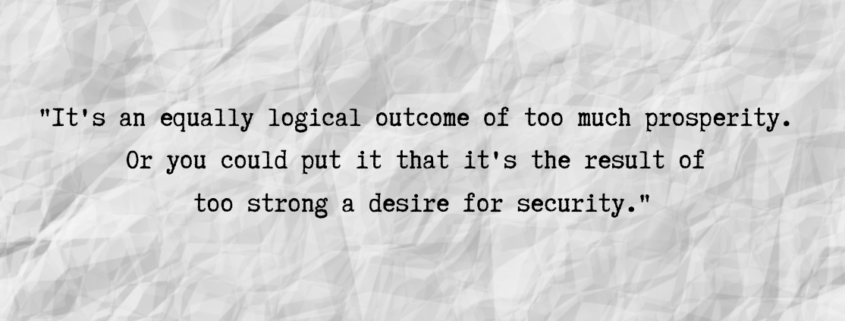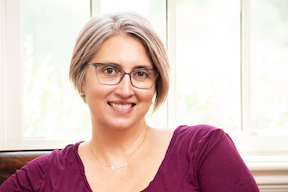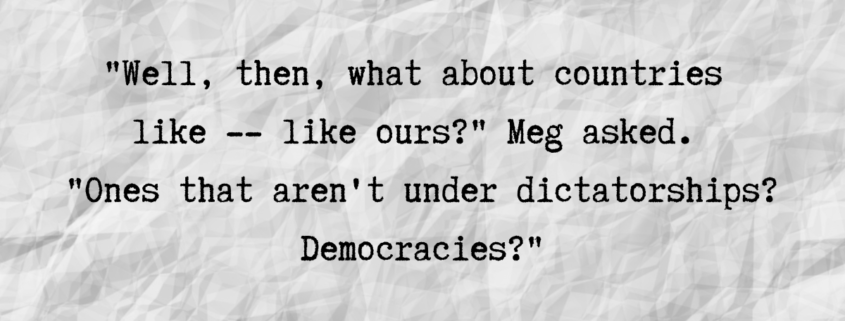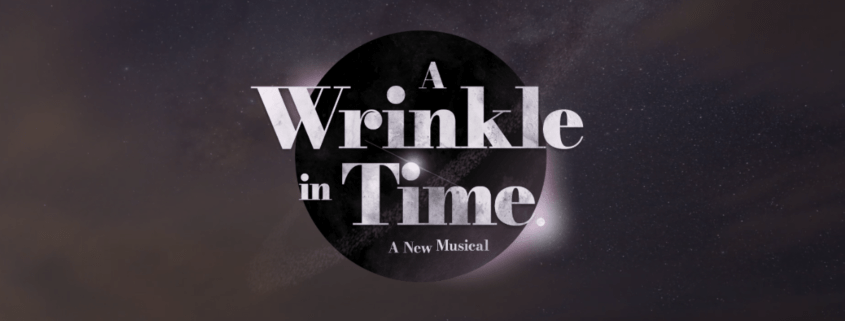by Charlotte Jones Voiklis
Dear Ones,
As we approach election day, I remember going with my grandmother to vote for the very first time in New York City 1988. Details are vague, but the memory is tied to a conversation with her about women’s rights: my grandfather had died in 1986, and she had a very hard time wresting control their bank account from the Manufacturers Hanover Trust that was on the NE corner of 106th Street and Broadway (now a shuttered Walgreens).
Although political discussions with her quickly veered from concrete policy to more abstract moral questions — she was not interested in doctrine, whether political or religious — she was a passionate voter. I took her to the polls in 2000, pushing her wheelchair down Broadway.
“It is the ability to choose which makes us human,” she says in Walking on Water, and she meant this in a multitude of ways. The choices we make at the ballot box are included, and our ability to choose will be affected by the outcome of elections.
Camazotz in A Wrinkle in Time is often — and incorrectly — read as a simple allegory for soviet-style communism. While Madeleine was convinced that any *ism* leads to dehumanizing generalities, she knew that totalitarianism (and the specter of Camazotz) lurked under the surface of American democracy. In earlier drafts of A Wrinkle in Time, she included a passage about how democracies might become like Camazotz, a dystopian society, under the control of one brain. She tried to make it work in two different places in the story, but it never quite did and was cut. [you can read a Wall Street Journal article about the cut passage here.]
Meg asks her father how planets can become like Camazotz and he explains that it could be the logical outcome of two things: totalitarianism or democracy. Calvin defines totalitarianism “It’s like Russia under Kruschev. Or Germany and Hitler. Countries under dictatorships. Franco. Mussolini. Castro. Mao.”
Meg asks, “What about countries like ours, ones that aren’t under dictatorships? Democracies?” Her father’s answer: “It’s an equally logical outcome of too much prosperity. Or you could put it that it’s the result of too strong a desire for security.”

Meg balks. “What’s wrong with security? Everyone likes to be all cosy and safe.” “Yes,” he responds. “It’s a most seductive thing,” and later he calls a lust for security “the greatest evil there is.”
[An aside: I am told that in Caitlin Keegan’s “The Illuminated Tarot,” the ten of diamonds represents this choice between security and enjoyment of wealth over risk for something greater. If there are any tarot readers who would like to write about this for the blog, let me know!]
Madeleine warned against the impulse to want to feel safe in religious practice or theological thinking. Churches, she says in A Circle of Quiet, have become “buildings that are a safe place to escape the awful demands of God.” “The Word,” she reminds us is And It Was Good, “is not a pet.”
I (briefly) wrote recently about Madeleine’s experience with censorship and the current spate of book bans, curriculum changes, and historical revisionism under the guise of “parental rights” (which parents?). Two years ago I wrote (even more briefly, on twitter) about this lost passage from early drafts of Wrinkle and said: “What we’re seeing now is the powerful scared of losing their position and willing to protect white supremacy at the cost of our democracy. We really are on the knife’s edge. Take care of yourselves, dear ones, and keep fighting.” I think that’s even more true now, and add this:
“Only a fool is not afraid,” Mrs Whatsit told him. “Now go.”
Please vote!

Photo by Don Hicks.
Charlotte Jones Voiklis is Madeleine L’Engle’s granddaughter and executor of her estate. She is the co-author with Jennifer Adams of A Book, Too, Can Be a Star (October 2022), a picture book biography illustrated by Adelina Lirius; and, with her sister, Léna Roy, of Becoming Madeleine (2018), a biography for middle grade readers. Charlotte has also written and spoken of her grandmother’s work to a variety of audiences. With a PhD in Comparative Literature, Charlotte’s work experience includes teaching and grant making. She is a volunteer mediator.


